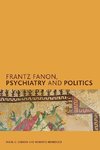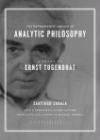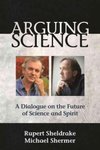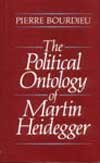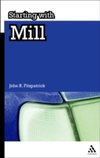
-
 Anglický jazyk
Anglický jazyk
Aristotle's "Not to Fear" Proof for the Necessary Eternality of the Universe
Autor: Gregory L Scott
Aristotle's Unmoved Mover of Metaphysics Lambda, often called God, still convinces some non-believers to become theists, despite its paradoxical nature. One recent case is the British philosopher, Antony Flew, co-author of There is a God: How the World's... Viac o knihe
Na objednávku
32.22 €
bežná cena: 35.80 €
O knihe
Aristotle's Unmoved Mover of Metaphysics Lambda, often called God, still convinces some non-believers to become theists, despite its paradoxical nature. One recent case is the British philosopher, Antony Flew, co-author of There is a God: How the World's Most Notorious Atheist Changed His Mind (2007). As Pure Actuality, the Mover has no potentiality, matter or physicality of any sort whatsoever and exists forever, with no potential therefore of not existing. It somehow guarantees the eternal existence of the contingent universe that could disappear but, because of the Mover, does not. Moreover, It thinks of itself thinking, always, like a hyper-intellectual Narcissus.
With derision, Cicero rejected the doctrine; Franz Brentano (1838-1917), a teacher of Sigmund Freud and Edmund Husserl, called it "prattle without all sense and reason"; and Werner Jaeger (1888-1961), a renowned specialist of Aristotle, asserted that the Northern Greek from Stagira renounced the doctrine as he matured, became more empirical, and gained distance from his Athenian mentor Plato. However, none of these thinkers provided the reasons for the Stagirite for how the universe necessarily lasts forever. Scott does.
All classicists know that Aristotle accepted the infinite past. Revising and extending the ground-breaking scholarship of Jaakko Hintikka and Sarah Broadie, this book demonstrates that Aristotle also held indubitably the Principle of Plenitude-"for infinite things, what may be, will be"-and that he even held it in modified form for finite things: "In infinite time, any (sort of genuine) possibility is actualized." Since every (sort of) real possibility has already been fulfilled in infinite (past) time and since the universe still exists, Aristotle concludes in Metaphysics Theta 8 that there is no fear that the heavens will ever stop moving. For additional reasons based on a profound understanding of necessity and possibility that no scholar until now has seen in this precise context, and with no recourse to the Unmoved Mover, he asserts that this eternal motion is necessary.
Because the universe is not contingent, Aristotle can, and does, drop the doctrine of Pure Actuality, all of which solves another perennial problem in ancient Greek philosophy: The Peripatetics in Aristotle's Lyceum and the other, later schools of philosophy like the Stoics never argued against the Unmoved Mover, even though they contested any important doctrine they found implausible. Scott's interpretation finally explains this. These Greek thinkers knew that the mature Aristotle accepted the inherent necessity of the eternal universe, and they all embraced that doctrine, too, in spite of variations in details.
- Vydavateľstvo: ExistencePS Press
- Rok vydania: 2019
- Formát: Paperback
- Rozmer: 229 x 152 mm
- Jazyk: Anglický jazyk
- ISBN: 9780999704967
